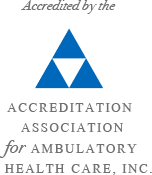When Heartburn Isn’t Just Heartburn: Signs You Might Need Esophageal PH Testing

Heartburn can seem harmless, but it’s a sign of something more serious in some cases. If your symptoms are persistent, worsen at night, or aren’t relieved by medication, it may be time to investigate your digestive health.
At Gramercy Park Digestive Disease Center (GPDDC) in New York City, our team of board-certified gastroenterologists specializes in advanced diagnostic procedures like 24-hour pH monitoring. With extensive experience performing outpatient endoscopic and acid reflux evaluations, our providers are recognized for delivering high-quality care backed by accreditation from the AAAHC.
Signs You Need Esophageal PH Monitoring
Not all heartburn is caused by acid reflux, and not all acid reflux presents with classic symptoms. Here are signs you may benefit from esophageal pH testing:
- Ongoing chest discomfort despite antacid use: Medications may not control acid exposure in all cases.
- Chronic coughing or throat irritation: These symptoms can indicate silent reflux affecting the upper airway.
- Heartburn at night or after meals: Acid exposure is often worse in the recumbent position or following heavy meals.
- Difficulty swallowing or sensation of a lump in the throat: These issues may signal esophageal irritation from reflux.
- Normal endoscopy, but ongoing symptoms: PH testing can uncover non-visible reflux activity missed during other exams.
These signs may point to undiagnosed GERD or require an adjusted treatment plan guided by real-time data.
When to Test for GERD with a PH Study
Your gastroenterologist may recommend a pH study if:
- You’ve experienced frequent heartburn (2+ times per week) for several months.
- Your symptoms return after stopping proton pump inhibitors (PPIs).
- You’re considering anti-reflux surgery.
- Your symptoms affect sleep or quality of life.
- You’ve tested negative for ulcers or other GI issues, but symptoms persist.
The timing and frequency of your symptoms help determine whether esophageal acid exposure is excessive.
Esophageal pH Testing Explained
There are two common methods used at GPDDC to measure esophageal pH:
- Catheter-based monitoring: A thin tube with a sensor is inserted through the nose and worn for 24 hours. It tracks acid levels throughout the day and night.
- Wireless capsule monitoring: A small capsule is temporarily attached to the esophagus lining, transmitting acid data wirelessly for up to 96 hours.
Both methods allow you to go about normal activities, including eating and sleeping, for accurate results in real-life conditions.
What Can pH Monitoring Detect?
Esophageal pH testing helps your provider:
- Confirm GERD diagnosis when symptoms aren’t straightforward.
- Measure the effectiveness of medications or lifestyle changes.
- Distinguish acid reflux from other conditions like eosinophilic esophagitis.
- Document reflux patterns before surgery or invasive treatment.
PH testing is considered one of the most precise ways to confirm reflux as the root cause of ongoing digestive symptoms.
Get Clarity on Reflux Symptoms with GPDDC
Experiencing ongoing heartburn or unexplained GI discomfort? Call 212-979-3237 today to learn how this simple test can support better outcomes and personalized care.


